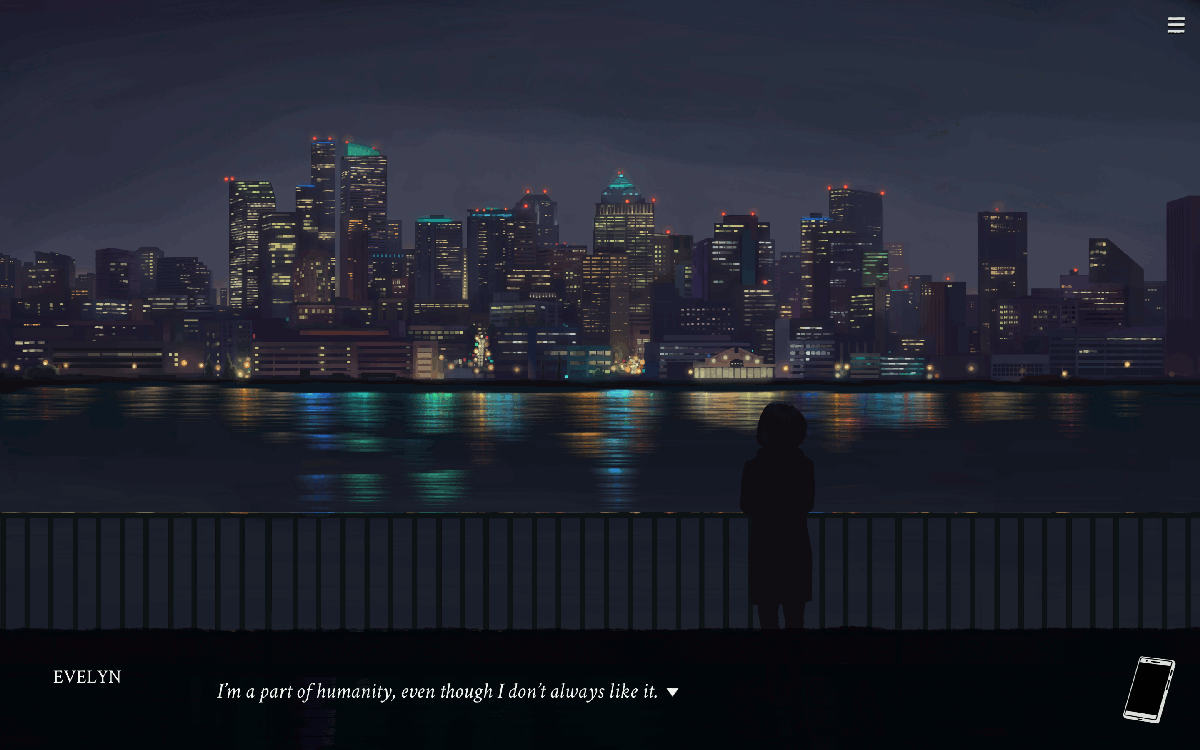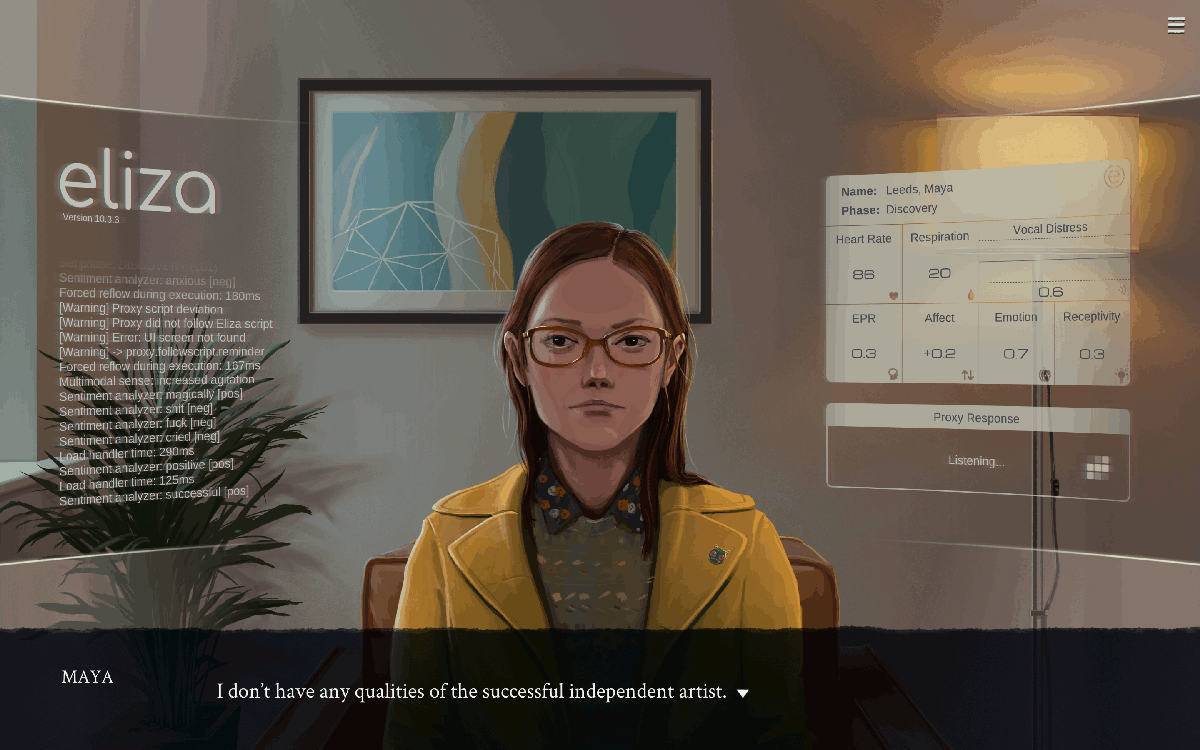Today I finished my first playthrough of Eliza, the beautiful 2019 visual novel developed by Zachtronics. Much like my ongoing experience of playing Death Stranding (also 2019, which I started playing over a year ago and will probably take another year at least to finish), I was amazed by the presience of the themes and subjects explored in a story that was written pre-Covid, pre-GenAI boom. In the developers' words, "Eliza is a visual novel about an AI counseling program, the people who develop it, and the people who use it." I won't be spoiling anything about the plot, because I think games ought to be experienced by playing them, and this one is well worth playing.

A screenshot from Eliza (Zachtronics, 2019) with the main character, Evelyn, silhouetted against a Seattle cityscape.
I started playing Eliza around New Year's this past winter. The story is absorbing and easy to get into, but I found myself taking breaks for long periods between finishing chapters. I think that's because it kept hitting home in unexpected ways. Not only is it a heavy story, with the main character Evelyn bearing tremendous emotional weight, but the bleak insinuations of technology steered by corporate egotists has taken hold in our current reality since the game's release. Playing this game in 2025 surely has a more resounding tone. I'm surprised I haven't seen it discussed much in recent times. (I'm pretty sure I learned of it through this 2019 episode of the Game Developer Podcast featuring Matthew Seiji Burns, who wrote, directed and composed the music for Eliza).
The game hits home on a personal level, too. Being in my mid-thirties, feeling aimless after losing the ability to do the type of work I've done for years, it was easy enough to put myself in Evelyn's shoes. But I was surprised at how deeply I ended up relating to side character Maya, a self-conscious artist and frequent client at the Eliza site where Evelyn works. Maya's frustrations with the unwinnable game of trying to get noticed in the art world (and her resentment of everyone around her who seems to be winning at it, somehow) felt intensely true to life. At times, Eliza felt like a story about art, as much as it felt like a story about technology, humanity, and the struggle to eke out a fulfilling life under the strains of capitalism.

Screenshot of Maya during a session with Eliza.
What struck me most about Eliza is the human touch that you can see in every element of the game. Every single spoken line of dialogue is voiced by a full cast. The game has a "History" feature you can scroll back through at any time, essentially a script that updates as you play. Seeing the text laid out in this way, I was constantly reminded of the work that goes into writing a story and conveying that story almost entirely through dialogue. The scenes and characters are beautifully painted by Kyle Steed. There are even mini-games you can play on the apps on Evelyn's phone. The solitaire game alone is so addictive, I probably spent at least 3 hours of my 9 hour playthrough on it. (Reading today, I learned that the game studio creates a new solitaire mini-game with all of their games, so no wonder it's good.)
Clearly, much care and effort went into making the game what it is, and those human elements speak for themselves in an era that values automation over skill, time and love. I'll be going back to replay chapters (and solitaire), and thinking about the importance of making things to remind you that you're human.